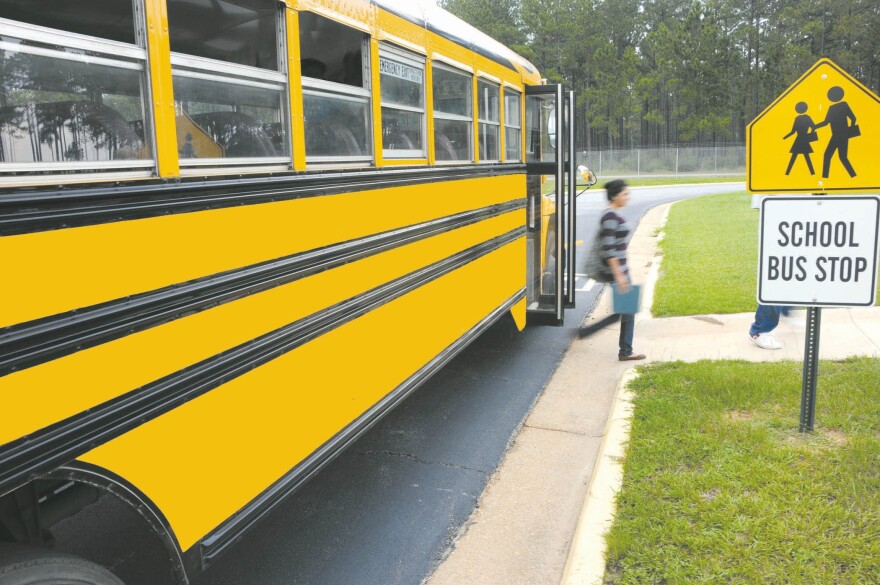Blessed Sacrament elementary school in Sioux City closed for the day on Wednesday after 24 percent of students were absent.
Tyler Brock with the Siouxland District Health Department in Sioux City said it appears schools across the state are impacted by respiratory infections, like the flu and COVID.
“It can be frustrating with these respiratory viruses cause it seems like no matter what we do, it's kinda hard to avoid it. We're not quite out of the woods yet, but hopefully we'll start seeing some improvement in the next couple of weeks,” Brock said.
Additionally, an outbreak of influenza caused the Laurens-Marathon Community School District to call off classes on Tuesday, and staff heavily disinfected the rooms. An elementary in Johnston closed for two days last week
Brock says the best thing for parents to do is keep their children home from school when sick. School districts report to the state when more than 10 percent of students are out due to illness.
*Additionally, Democratic Representative Josh Turek, of Council Bluffs, has introduced a bill in the Iowa House to repeal the Education Savings Account program that is now in its second year.
Turek cited a study by the Legislative Services Agency that Educational Savings Accounts will cost Iowa $345 million in fiscal year 2026.
As of July 2024, over 30,000 students were approved for the Education Savings Account, and are using them in private schools. For the 2024-2025 school year each student’s account receives $7,826.
“I am fundamentally opposed to public dollars going to unregulated, private schools with no oversight,” Turek said Wednesday.
“I have nothing against private schools. I was bullied so badly that I went to a small private school for middle school. They can and do a great job. Parents should have the right to put their kids in private school. But it should not be the taxpayers that provide that. Taxpayer dollars belong exclusively in public schools.”
Concerning public school funding, in her Condition of the State address, Governor Kim Reynolds proposed a 2 percent increase in base per pupil funding.
*In legislative news in another state, a bill prohibiting any area of South Dakota from becoming a sanctuary city is now approved by the Legislature.
The measure prevents any entity from granting any undocumented immigrants legal citizenship status. After passage in the state House on Tuesday, it now awaits the signature of Governor Larry Rhoden to become law.
State Representative Mary Fitzgerald, of Spearfish, said it keeps South Dakotans safe by following the federal government’s lead.
“The South Dakota legislature is not in charge of border security, but we are affected by the criminals who have entered the United States illegally. Today, I’m asking the legislature to do the right thing, to do their part, to make America safe again,” Fitzgerald said.
Sioux Falls Democratic Rep. Kadyn Wittman disagreed, saying the bill could cause more harm than good.
“There’s no evidence that local law enforcement is failing to cooperate with federal authorities. I reached out to our local law enforcement in Sioux Falls. They’re nervous that this piece of legislation is going to further erode the relationships that they have built with our immigrant communities in Sioux Falls,” Wittman said.
*In the Nebraska Legislature, state senators in the Banking and Commerce Committee have discussed a proposal to limit the addictive design features of social media apps for minors.
Sen. Carolyn Bosn introduced LB504, also known as the Age-Appropriate Online Design Code Act, at the request of Gov. Jim Pillen. It gives the Nebraska Attorney General the authority to hold companies like Meta and Snapchat accountable for causing harm to minors through phone addiction and identity theft.
Opponents of the legislation said it is likely unconstitutional because it has the potential to infringe on the first amendment rights.
A similar bill requiring social media companies to follow certain design standards for minors was passed in California in 2022, and that measure was later struck down by a Circuit Court.
The committee will consider whether to advance the bill to the full Legislature for additional debate.
Also in the Nebraska Legislature, a proposal to require schools to have policies restricting cell phones drew widespread support, but also confusion over details, at an Education Committee hearing Tuesday.
Governor Jim Pillen testified on behalf of the bill in the committee.
It would require schools to adopt policies to prohibit cell phone use on school property or at school functions. But it would also allow broad exceptions, including when authorized by individual teachers or school boards.
Sanders said she’s trying to address a problem that’s hurting students.
Tim Royers, president of the Nebraska State Education Association, said teachers support the proposal, but the biggest problem could actually be parents.
“Unfortunately, there's a lot of parents who say they get behind it, but they always find a reason why their use of the device with their kid is okay, and oftentimes it's things like, I just want to know what my kid wants for dinner, and then they're upset with us because we won't let the kid answer that text,” Royers said.





